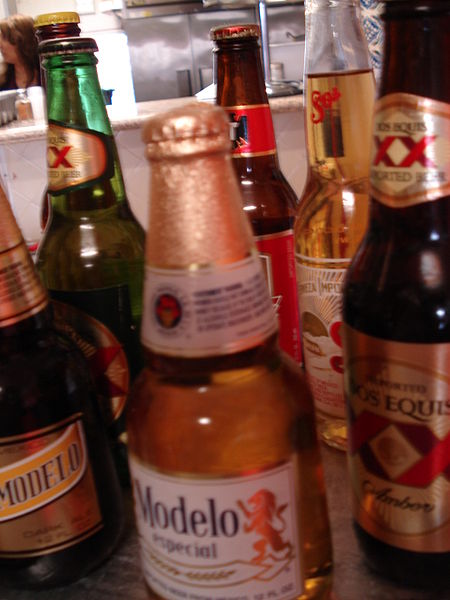Everybody now takes greater notice to the existence of a counter beer culture. This culture stands against all that is macro brewing. It takes to heart that the beer label on the bottle in one's hand is just as important as the name of the birthplace on one's birth certificate.
But did you know there is a group that is attempting to become a rebel force?
These rebels are diguised as people who enjoy "exotic" beers. That means obscure imports.
This perpetuation is often misguided and riddled with confusion. So let's see how we can fix it.
Let's use a simple format to deconstruct the errors of these uneducated drinkers.
For example;

Latin American beers.....
The people that "Only drink Latin beer" are either one of two things; ignorant, or incredibly ignorant.
Does anybody know how many corporate breweries exist in Mexico alone?
-three
Three breweries brew over a dozen different beers- how's that for a monopoly?
I know where you're going to go with this rebels...
(Whiny voice) "Well, I drink ________." (insert Quilmes, Aguila, Panama, Brahma, Imperial, some other piss etc.)
The problem with the majority of international beer is this-
90-95 percent of the world drinks Lager.
Not interesting variations on lager- but just plain light colored, light bodied, light flavored lager.
Tibbs, why is this so?
The answer is simple- you know how accordions are present in horrible Mexican music?
----It's the freakin' Germanic influence provided by emmigrating Germans throughout the early to mid 20th century!!!!
Germans went everywhere and took their beer sensibilities with them. This meant that Imperial in Costa Rica doesn't taste that different from Tecate in Mexico or quilmes in Argentina. Bet you rebels feel pretty stupid now, huh? No>?- Well, you should.
Now let's get to the second part.
Brewing has had a long history of representing the people brewing the beer, the environment in which is it brewed, and the local products in such environment.
A brewer would use local water, local barley and/or wheat, local hops, and usually use a cultivated local yeast or spontaneously found local yeast.
You could travel from place to place and find unique beer different form the beer in the previous locale.
But not anymore.
And that is due to trade and technology.
Modern day brewers can control the chemical makeup and character of water used in brewing.
That means you can take Pomona Municipal water and change it to taste like the legendary water of Burton found in Bass.
This gives the modern brewer flexibility in achieveing desired taste and quality. But it also refrains him from total local expression in a most chemical sense.
Trade comes into play by allowing a brewer to purchase grain and hops from whoever he wishes- no longer limited by local supplies and market strongholds. Trade affects international beer in the respect that when you pick up a bottle of Panama- there is a good chance that the grain used in brewing the beer may have come from Bolivia or even the US.
Ethically- how can you drink an exotic beer made with ingredients that aren't even representative of the beer's supposed origin?
The answer to this confusion is craft made beer.
Afterall, why drink another country's budweiser? Why?
 The 2009 Christmas "Our Special Ale" is exceptionally creamy compared to previous vintages and exhibits slightly oak-ey vanilla heft.
The 2009 Christmas "Our Special Ale" is exceptionally creamy compared to previous vintages and exhibits slightly oak-ey vanilla heft.
